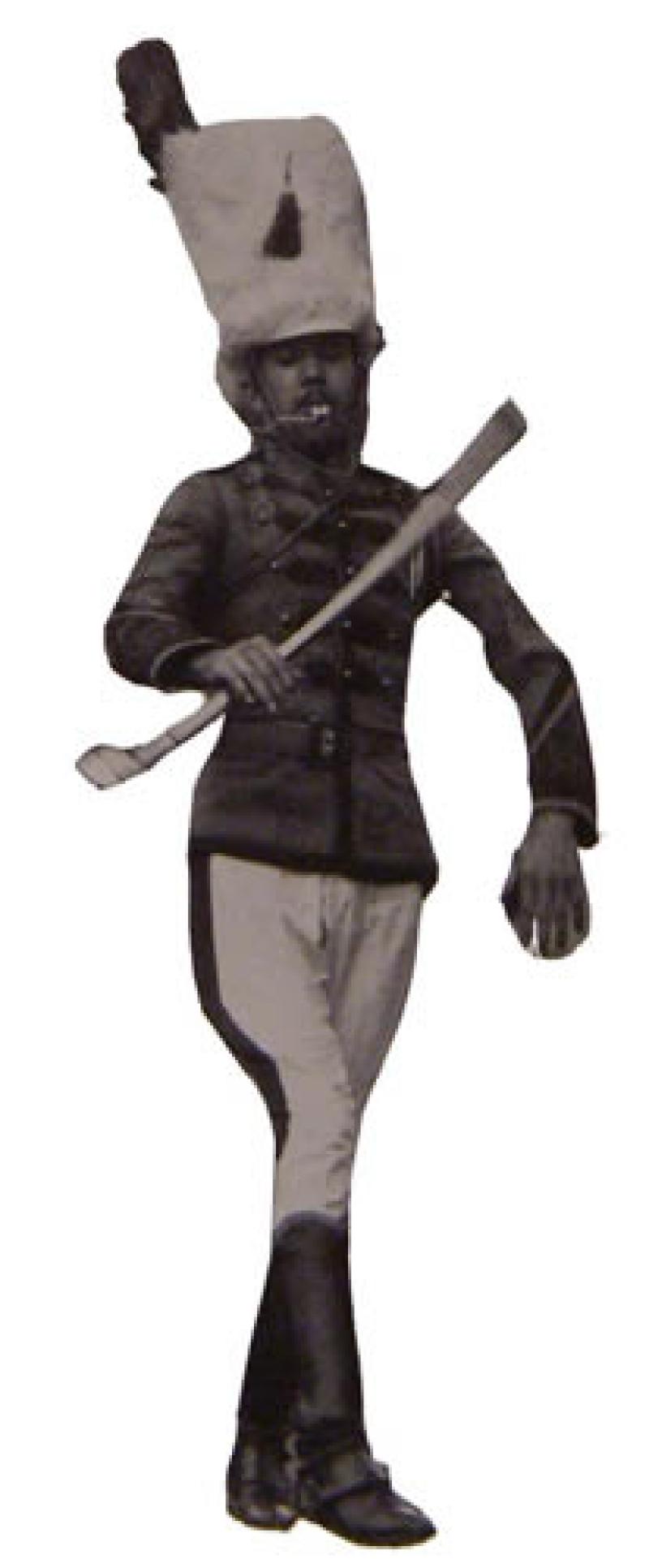William S. Casey: 1934-1935

Casey reminisced about those Depression years when a bandsman had to make his own way. "I became a member of the OSU band in '31. That year I played alto saxophone; the next, the clarinet, and started the third on piccolo. That year my playing was cut short — even before the first game. I had been working downtown with Frank Ferneau's band at the State Restaurant (Chinese), where part of the job was providing the music for noon hour dining and dancing. I was working on the day of the first game of the season ('33), but left immediately after our theme song, got a cab, and put on my band uniform accessories during the ride to the stadium. After rushing across he fields and parking lots, I was stopped at the gate —though fully attired in crossbelts, breastplate, scarlet and gray cape, pom-poms, spats, with piccolo in hand — by an attendant who thought I was a fresh young gate crasher. My pleading just didn't work, so after a few minutes of agonized watching from the closed gate as the band formed in the ramp and marched on the field, I turned and walked dejectedly toward home."
Casey dreaded facing Band Director Weigel the next morning, because he knew how unexcused absences were handled within the band. After learning the facts, Professor Weigel was not furious but was very understanding. He knew that in those depression years many students had to keep working in order to stay in school. (Even though tuition was only $19 a quarter, students sometimes had to request temporary deferment of fees at the beginning of a term.) Casey did not play the rest of that year, because of the change over to the all-brass instrumentation of the band. None of the instruments he had played were continued in use. He did, however, continue as assistant drum major.
In 1934 he tried out for drum major and won over a field of eight candidates. He postponed his graduation one year by going on a six-week Mediterranean cruise on the "Aquitania" with an eight-piece band that included another former band member, Clare Grundman. Thus, he was still eligible for a second year in 1935.
Casey wore Wib Pettegrew's drum major suit. (McCreary, before Casey, had worn Knepper's uniform). Apparently the hand-me-down was not noted by the press and he was given a glowing review: "Bill Casey, rigged out in a skin tight uniform strutting at the head of the band, twirling his baton with either hand, tossing it over goal posts with one hand, catching it with the other makes a pretty picture." In photographs the two drum majors do look a lot alike, with one slight difference: Pettegrew wore his chin strap underneath, instead of on his chin.
One of the many incidents with the band that Casey recalls with pleasure was the time McCreary led the Varsity Band and he, the ROTC Regimental Band. "We had worked out a pattern for simultaneously exchanging our batons several times while marching side by side with about five yards between us," he said. "One of the batons (rather large ones and not the smaller twirling batons currently in use) was passed low with only two spins, while the other went high with three. It worked well, with no drops, and we ended together with both batons over the goal post."
